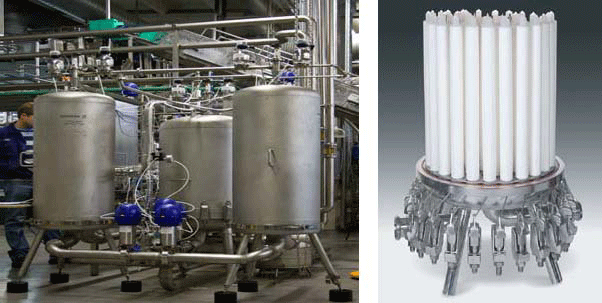A process control system has been supporting the brewing process at the Bitburger Brauerei for around 30 years already. The automation infrastructure is continuously upgraded. State-of-the-art innovation steps and the conversion from a centralized to a decentralized structure make sure that ancillary processes are also integrated and the focus is firmly on increasing efficiency. This is to be boosted further by upgrading the process control system.
The Brewers of Europe welcomes a new report, adopted yesterday evening by the European Economic and Social Committee (EESC), which recognises the potential of the beer sector to generate jobs and growth and calls on EU policymakers and Member States to back the sector.
Some time in the late 1970s, long before the fall of communism and the rise of globalisation, we at BRAUWELT felt that profound change was underfoot in the brewing industry. Technological progress had led to the automation of brewing and the proliferation of packaging. Various improvements and innovations, which helped increase scale economies and allowed for greater efficiencies, were well documented in the weekly issues of BRAUWELT, but were unavailable to brewers who did not speak German.
No two beers are alike – and we are not talking about a specific beer type or about beer from a specific brewery. It’s only a matter of the container and the way it is transferred from container to glass. Beer bottles and cans are, indeed, very widely used and are eminently suitable for beer enjoyment at home. However, the true beer lover will always prefer a particular beer: Fresh from the tap.
At the drinktec trade show in Munich, Germany, Alfa Laval and Sartorius Stedim Biotech announced an extension of their cooperation regarding the distribution of membrane filters for cold sterilization of beer.
As a global manufacturer and marketer of ingredients and ingredient systems, Döhler has secured its leading position in flavours for beverages and food through the 100% takeover of the Polish Aromes Group. Alongside its core competence in the field of flavours, Aromes also provides its customers with beverage bases, emulsions, colours and compounds. In addition to Aromes’s production site, which is located near Warsaw (Grodzisk Mazowiecki), the company also has two sales locations in Ukraine and the Baltics. As a renowned partner for the food and beverage industry, Aromes has many years of experience in the production of premium flavours and extracts and in the application of baked goods, confectionery and beverages, as well as detailed knowledge of the Eastern European market and its consumers. This has allowed Aromes to develop a product portfolio that is tailored especially to local taste preferences. In addition to premium extracts and flavours for beverages, including many flavour specialities in regionally significant flavours, Aromes also offers a wide-ranging flavour portfolio for the baked goods and confectionery industry. This final strategic part of the portfolio makes Döhler the ideal partner for the Eastern European food and beverage industry.
Simulation of the brewing process offers an effective way to optimise the entire production system, from the brewhouse through to storage of finished goods. Different planning strategies are analysed and then optimized without any danger of disrupting daily operations. This article provides an introduction on how simulation technology is being applied to the brewing industry.
Environmental awareness is important in the brewing sector, both for ensuring the availability of high quality resources and to meet consumers’ expectations on environmental aspects. Minimizing energy and water consumption and related CO2-emissions is one of the routes to enhance sustainability in the brewing sector. To determine what energy and water efficiencies breweries worldwide achieve, the fourth energy benchmark 2012 and second water benchmark 2012 have been performed; these are based on data from 2011. From the results the new best practice on energy and water efficiency has been established.
The Bitburger Brewing Group has committed itself to the highest quality on all levels, a commitment born of tradition and conviction. This principle has always been an integral part of the corporate philosophy. In order to live up to its own standards, the brewing group is continually investing in the latest technology and laboratory equipment, as well as in the expertise of its employees. Since February 2013, CboxQC At-line, the combined CO2 and O2 meter from Anton Paar, has been successfully used at the brewery in Bitburg, Germany.
When the people responsible at Heineken Brewery in South Africa started their investigation for pipe insulation they had several issues: 20 000 meters of pipes had to be installed, working as deep-freeze, energy carrying and product carrying pipelines. Big points for the costs of this project were complex and cost effective scaffolding and the employment of special refrigeration clamps – typical problems also for other operators of big industrial plants such as BASF AG, Kraft Foods Deutschland GmbH or Dow Chemicals GmbH. With the pre-insulated pipe systems of Jabitherm Rohrsysteme AG these problems could be solved due to the employment of unspecific common clamps directly onto the outer jacket and the significant decrease of scaffolding work. These pipe systems are introduced in the following article.


